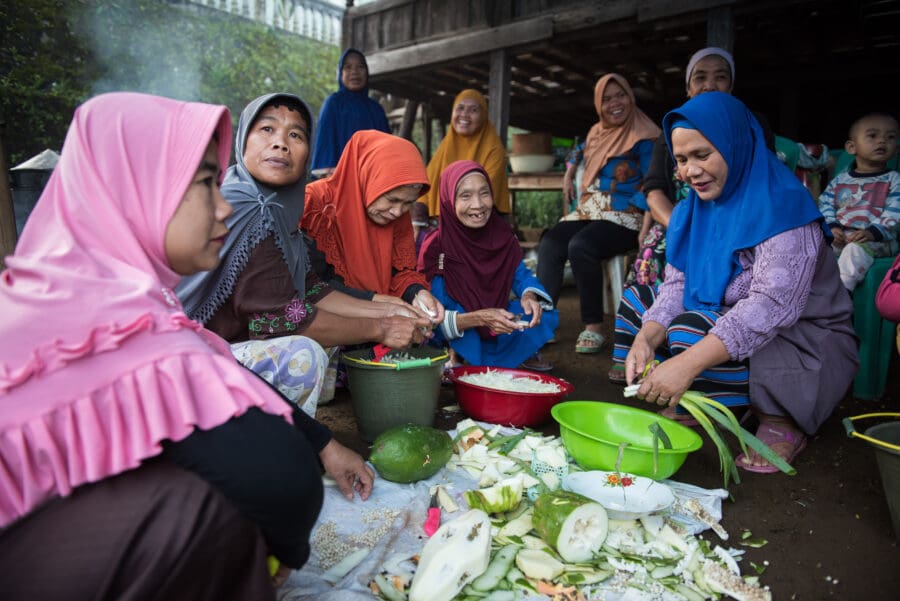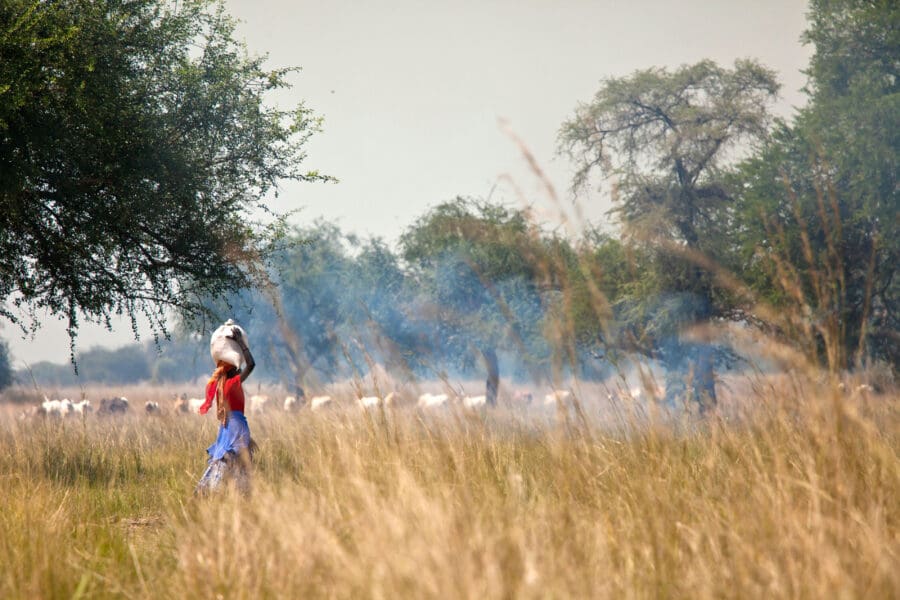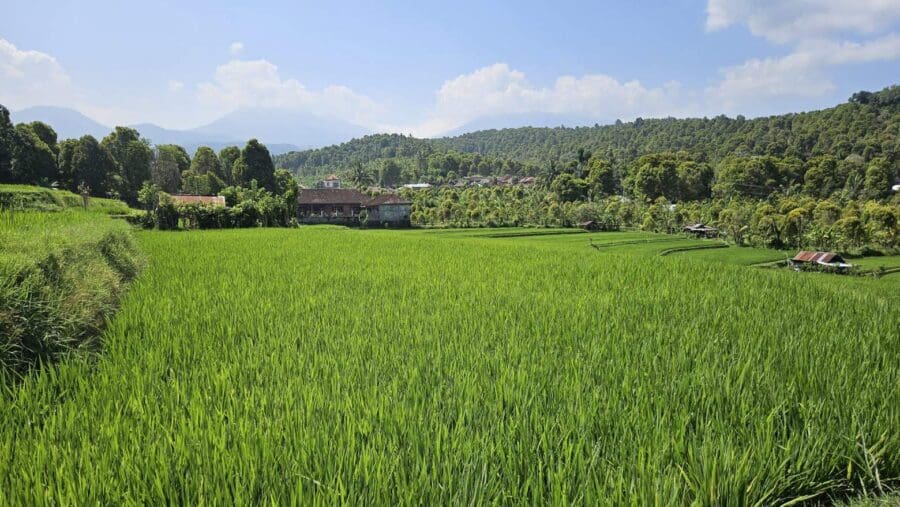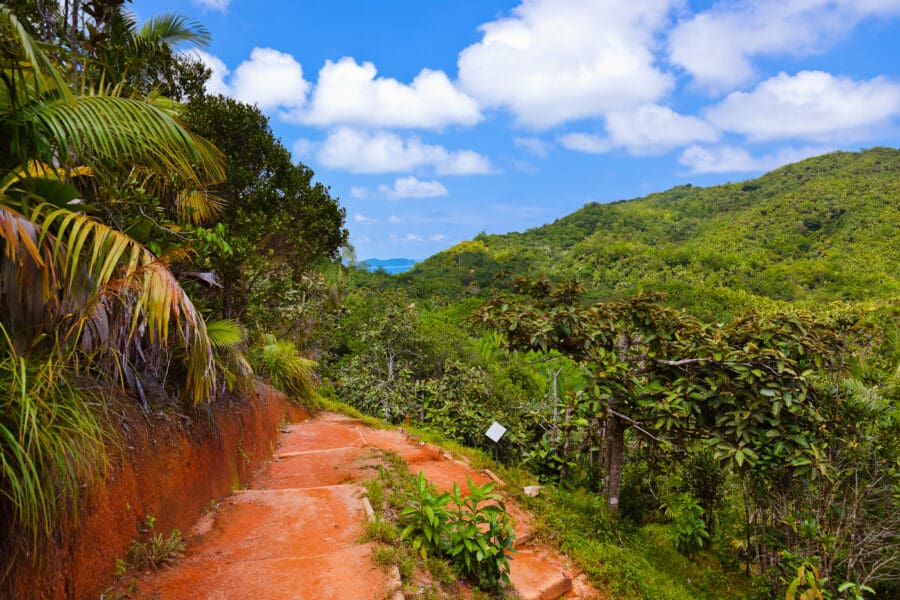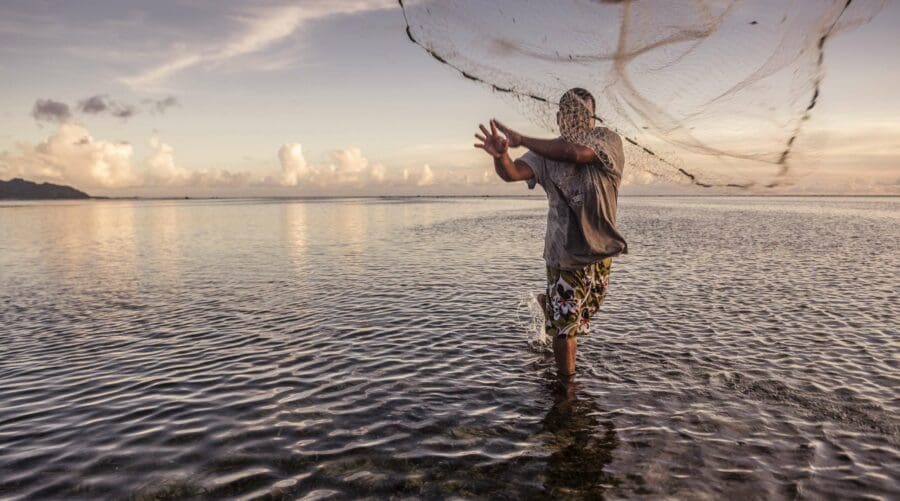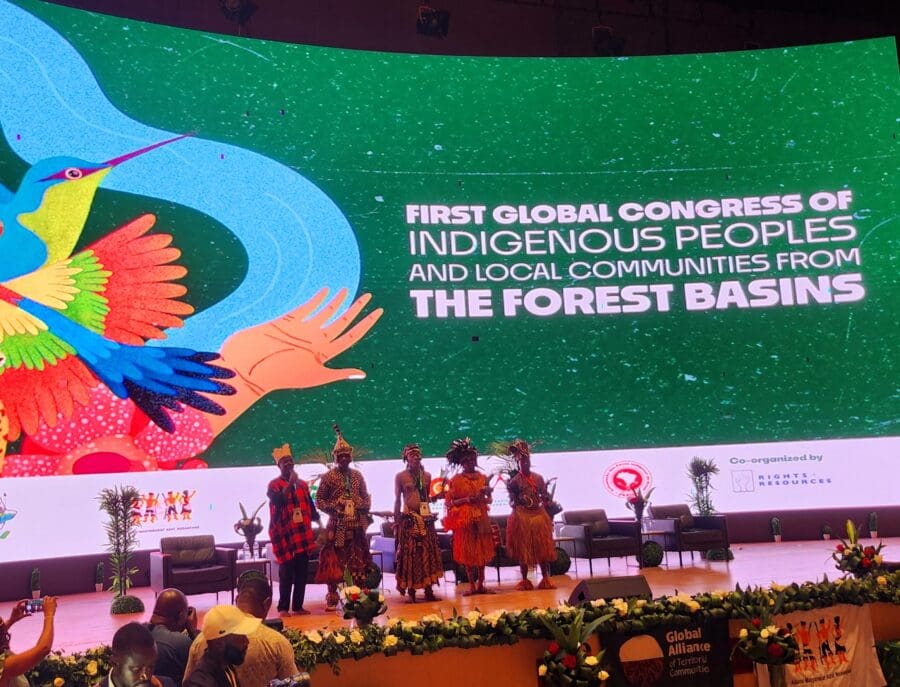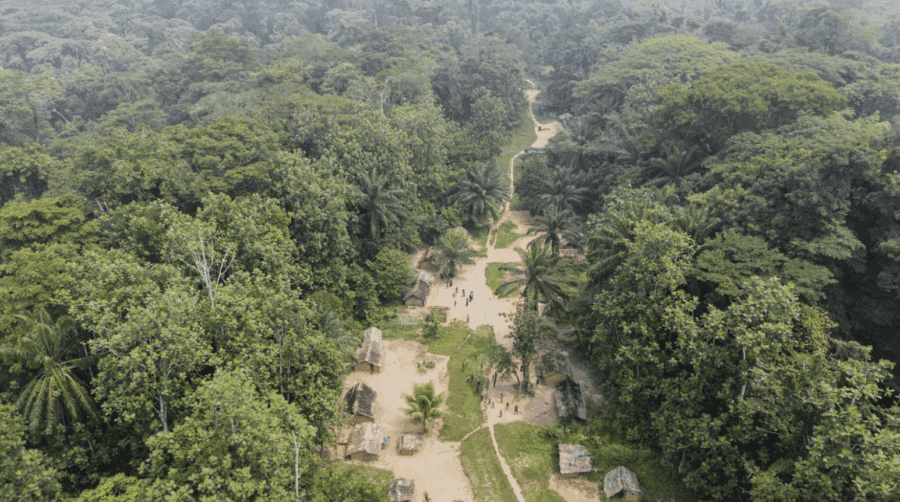Overall, these approaches, which are framed as human rights issues alongside environmental issues, have a drastic impact on the globe’s future. In September, The Rights and Resources Initiative (RRI) published a study that found that “legally recognized indigenous and community forests tend to store more carbon and experience lower rates of deforestation than other forests.” RRI’s findings reinforce the view that locally managed forests, whether it is indigenous lands or communal lands, help connect the health of nature with the health of people and ultimately the health of our collective future.

Indigenous peoples denounce ongoing land rights violations in Ecuador
Indigenous people in Ecuador say their territorial rights are being systematically violated, according to a top United Nations official. Victoria Tauli-Corpuz, the U.N.’s special rapporteur on the rights of indigenous peoples, is urging the Ecuadoran government to form a “truly plurinational and multicultural society” in accordance with its constitution and international law.
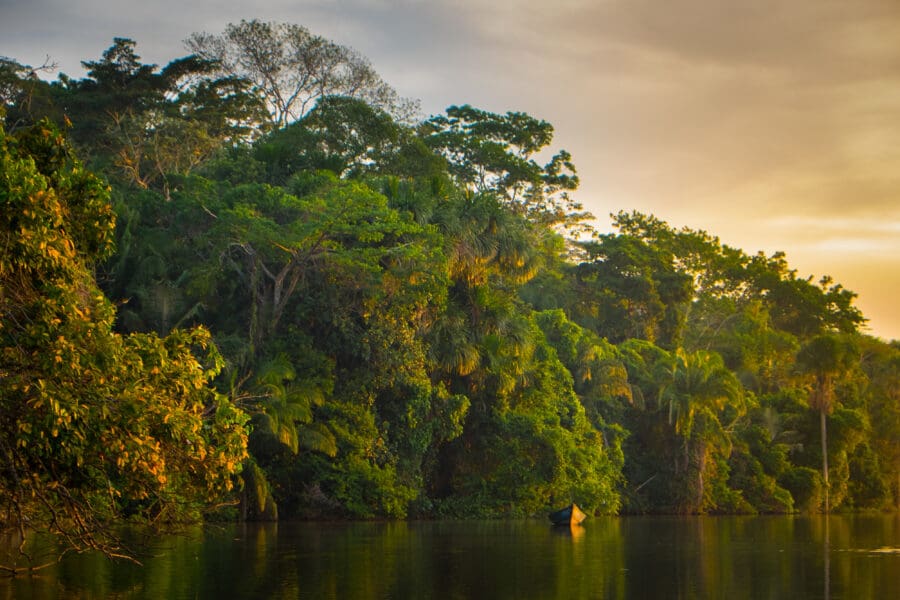
Approaching the point of no return
As world leaders gather in Poland this week to hold a critical dialogue on the UN Framework Convention on Climate Change (UNFCCC), the world’s tropical forests ought to take center stage. The ambitious pledge of the Paris Agreement will be virtually unattainable if the world’s remaining tropical forests are not safeguarded.

As regimes attempt to roll back human rights, Indigenous Peoples and local communities find power in partnerships
On the 70th anniversary of the Universal Declaration on Human Rights, RRI’s Latin America Program Director reflects on the human rights challenges facing indigenous, Afro-descendant, and peasant communities—and how they and their allies are joining forces to take on these challenges together.
Tourism and marine parks threaten Thailand’s ‘people of the sea’
The Chao Lay, or people of the sea, have lived on the shores of Thailand and Myanmar for generations, fishing and foraging. But the community may be facing its greatest threat yet as marine conservation efforts limit their traditional fishing grounds, and a tourism boom pits them against developers keen on the patch of land that their boats, homes and shrines sit on.

Recognition of indigenous territories as a REDD+ strategy: An example from the Peruvian Amazon
A recent Rights and Resources report provides strong evidence on the importance of recognizing and protecting indigenous rights towards mitigating forest-based emissions and curbing global warming. As a Ph.D. student coordinating the third round of data collection of CIFOR’s Global Comparative Study on REDD+ in Ucayali, Peru, I was pleased to find an on the ground example of why this is important and how tenure security can help achieve the objective of REDD+.
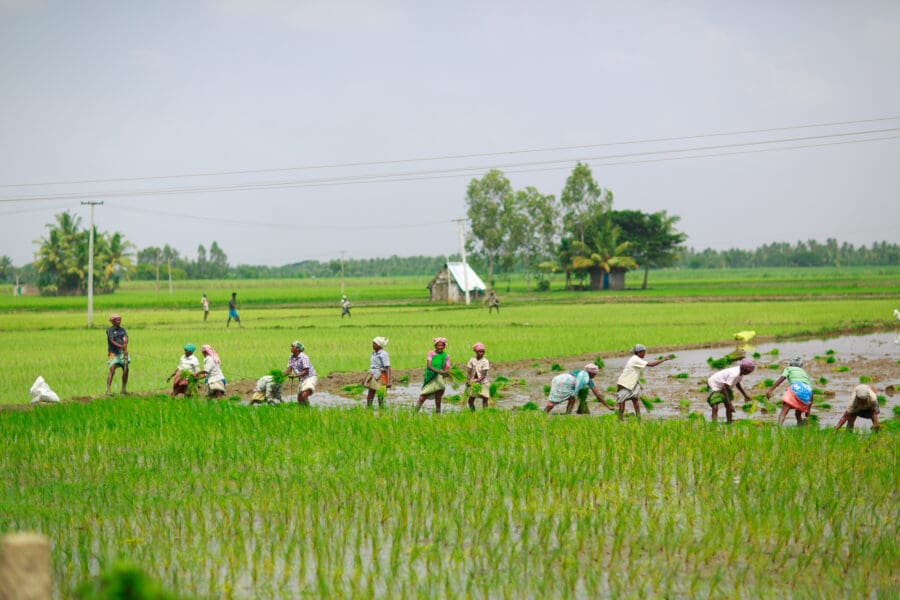
India’s Land Conflict Watch: Tracking Land Conflicts to Drive Rights Recognition
Given that India is the seventh largest country in the world with a population of 1.3 billion people, it is not surprising that land conflicts that affect more remote communities and Indigenous Peoples rarely gain national or international recognition. Land Conflict Watch tracks these cases in order to make them more visible and actionable for journalists, researchers, and policymakers.
Forests and Biodiversity Need Indigenous Stewardship
Around 2011 or 2012, indigenous villagers outside Manu National Park, an internationally renowned biodiversity hotspot in southwestern Peru, noticed that bananas were mysteriously disappearing from the trees that ringed their huts. At the same time, they found that their huts were being ransacked while they were out. They only understood what was happening when they finally caught glimpses of their rarely seen neighbors, uncontacted Mashco Piro tribespeople who lived deep within the park.
With forest rights, indigenous Indonesians stave off mining, palm oil
Governments maintain control over more than two-thirds of global forest area, much of which is claimed by local communities, RRI said in a recent report. In Indonesia, indigenous people are estimated to have ownership rights over 40 million hectares of customary forest and other land.
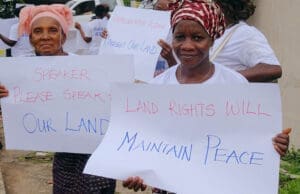
An Historic Victory for Liberian People and Communities
On September 19, Liberian President George Manneh Weah signed into law the Land Rights Bill (LRB), a landmark piece of legislation that recognizes the rights of Indigenous Peoples and local communities to their customary lands and gives customary land the same standing as private land in Liberia. This historic victory sets a precedent for land rights recognition in West Africa and can serve as a model for the region and beyond.
Opinion: Protect indigenous, community, and women’s land rights for food security and nutrition
Around 1 in 9 people in the world — 821 million — are undernourished. After a prolonged decline, the Food and Agriculture Organization of the United Nations found that world hunger is rising once again.
The world’s food systems need to be transformed to curb this trend. Legally recognized and protected land rights for indigenous peoples and local communities in the developing world are a key part of revitalizing the world’s food systems. In particular, the rights of rural and indigenous women to support diverse, local agricultural production require urgent attention.
How Carbon Trading Became a Way of Life for California’s Yurok Tribe
A number of experts now believe that reclaiming land for indigenous people is the best way to protect the Earth’s forests. According to the Rights and Resources Initiative, an N.G.O. that advocates for native land rights, legally recognized indigenous forests “tend to store more carbon and experience lower rates of deforestation.” But in a recent report supported by data from the Woods Hole Research Center, the initiative found that while indigenous communities currently manage forests and soil containing nearly three hundred billion metric tons of carbon—thirty-three times more than global energy-related emissions in 2017—they lacked legal titles to the sites of at least a third of that carbon total.” This puts “them, their forests and the carbon they store at great risk,” Alain Frechette, one of the authors of the initiative’s report, said.

